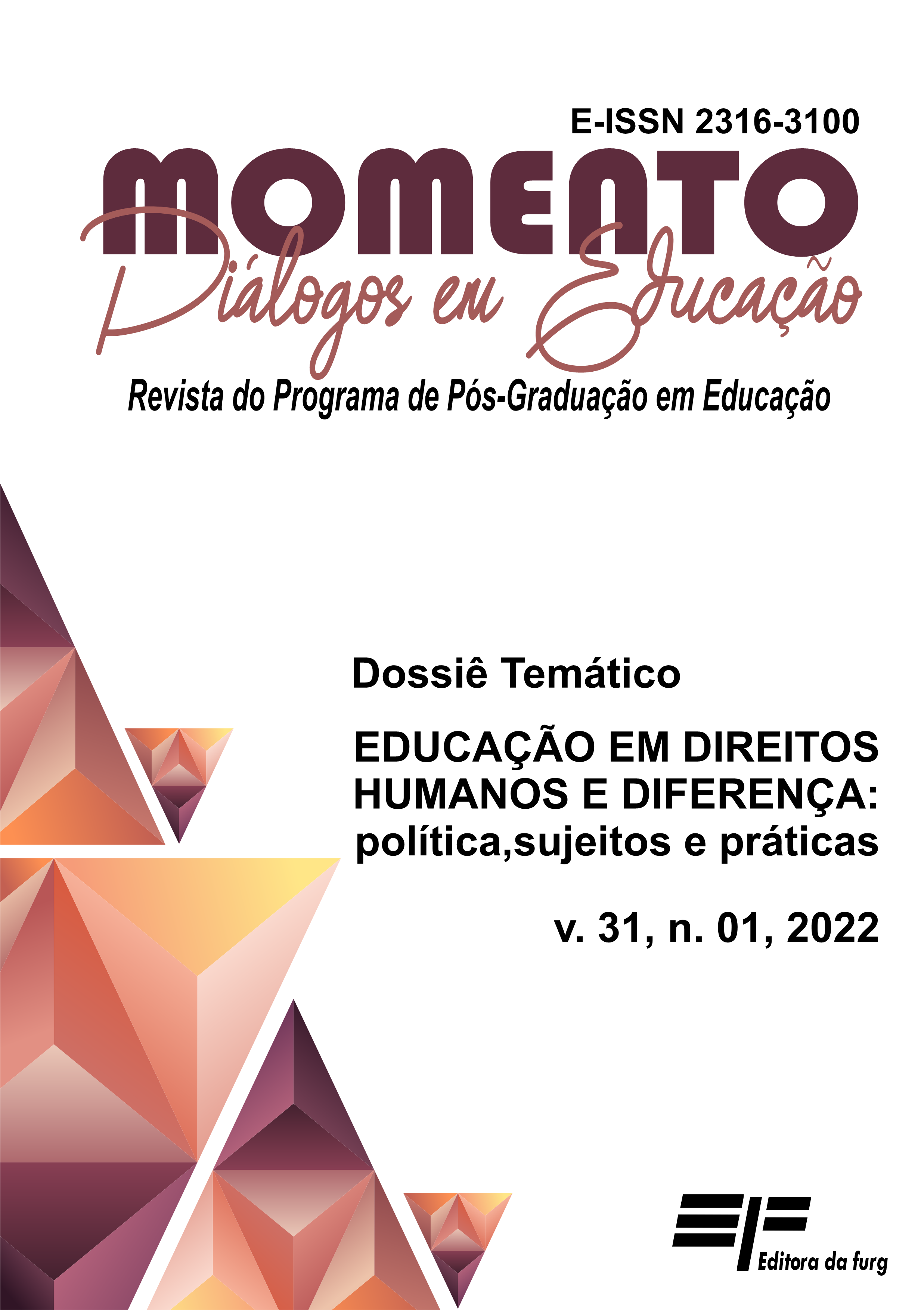DIFFERENCE AND DIFFERENCES
key concepts in the theory of human rights and for human rights education
DOI:
https://doi.org/10.14295/momento.v31i01.13778Keywords:
Human Rights. Human Rights Education. Difference/s. Discrimination.Abstract
The essay examines the concept of difference in two important areas of human rights theory, which in turn influence human rights education since they are central for the exercise and defense of human rights in daily life. First, the text analyzes the tension between two pairs of opposing features present in the relationship among individual, society and human species: Similarity VERSUS Difference, and its complement Unity VERSUS Diversity. Human rights theory builds a dialectic relationship between these pairs of features which leads to two fundamental outcomes of the theory: the concept of person or subject of rights, and the concept of the most suitable social organization to further his/her development and rights, democracy. Secondly, difference as a plural notion is discussed, in the sense of identifying dissimilar types of differences among people, in particular legitimate or illegitimate differences. They differ in their origin and value in the defense of human rights, and ask for very distinct attitudes and conducts: legitimate differences ask for understanding and tolerance; illegitimate differences for rejection and challenge. The text goes deeper into the social situation triggered by not understanding the legitimate differences among persons, which leads to the pervasive evil of discrimination, cause of the denial of human rights to many social groups.
Downloads
References
ACNUDH - Alto Comisionado de Naciones Unidas para los Derechos Humanos (2005) ABC. La enseñanza de los Derechos Humanos Actividades prácticas para escuelas primarias y secundarias. New York y Ginebra: ACNUDH, 2005.
DEWEY, John. Democracia y educación: Una introducción a la filosofía de la educación. 1. ed. Madrid: Ediciones Morata, 1995 [1916].
Instituto Interamericano de Derechos Humanos-IIDH y Amnistía Internacional-AI, redacción de Ana María Rodino. Carpeta de Materiales para Educación en Derechos Humanos. 1. ed. San José, Costa Rica: IIDH; AI, 1993.
MORIN, Edgar. Los siete saberes necesarios para la educación del futuro. Bogotá, Colombia: Cooperativa Editorial Magisterio, 2001 [1999].
Naciones Unidas. Declaración Universal de Derechos Humanos. Proclamada por la Asamblea General de las Naciones Unidas el 10 de diciembre de 1948 en su Resolución 217 A (III), ONU: 1948.
ODIO BENITO, Elizabeth. La discriminación en el goce de los derechos humanos. Manual de Conferencias, Instituto Interamericano de Derechos Humanos-IIDH, San José, Costa Rica: IIDH, 1990.
PERROT, Dominique; PREISWERK, Roy. Etnocentrismo e historia. América indígenas, África y Asia en la visión distorsionada de la cultura occidental. México: Editorial Nueva Imagen, 1975.
RODINO, Ana María. Educación en derechos humanos para una ciudadanía democrática. San José, Costa Rica: Editorial de la Universidad Estatal a Distancia, 2015.
TEDESCO, Juan Carlos. El nuevo pacto educativo. Madrid, España: Anaya, 1995.
Downloads
Published
How to Cite
Issue
Section
License
Copyright (c) 2022 Momento - Diálogos em Educação

This work is licensed under a Creative Commons Attribution 4.0 International License.
À Revista Momento − Diálogos em Educação, ficam reservados os direitos autorais, de todos os artigos nela publicados.


